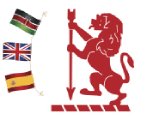Online Safety
Pupils
The Internet is an amazing thing! At school we use the Internet on a regular basis as part of our learning and teaching. In school, we have regular 'e-safety' activities to remind children of the importance of keeping themselves safe online.
Here is some advice for using the Internet safely:
- Always ask permission before using the Internet.
- Only send e-mails to your friends.
- Only go to Internet sites that you know are safe.
- Be careful what you type into a search engine.
- Never tell anyone your name, address or telephone number over the Internet.
- Always tell your parents or teacher if you are upset by something you see on the Internet.
Our computer network at school is safeguarded against inappropriate content. Unfortunately, computers at home might not have the same level of safety. Always follow the advice above when you are using the Internet. That way, you will stay safe and protect yourselves and those around you.
You are not allowed to have a page on social networking sites such as Facebook. If you have one with your parent or carer's permission, you can do some things to make this a bit safer.
- Set the highest security so that your details, picture etc cannot be seen by just anybody
- Use a made up name so that only people that you really know can find you
- Only accept as friends people that you really know. remember that although someone says that they are 12 years old on the Internet, thay might not really be 12!
Click on any of these links to find out more about how to keep safe on the Internet.
http://www.internetsafetyzone.co.uk/under-13s/
http://www.childnet-int.org/kia/primary/smartadventure/default.aspx
Parents and Carers
The internet is an essential element in 21st century life for education and social interaction. The school has a duty to provide students with quality internet access as part of their learning experience.
At Egerton we take all reasonable measures to make sure that your children are able to use the Internet safely.
For full details of our approach to e safety, please see our e safety policy on the website's Policies section.
E mail
- Pupils may only use approved e-mail accounts on the school system. They must immediately tell a teacher if they receive offensive e-mail.
- Pupils must not reveal personal details of themselves or others in e-mail communication, or arrange to meet anyone without specific permission.
- E-mail sent to an external organisation should be written carefully and authorised before sending, in the same way as a letter written on school headed paper.
The forwarding of chain e mails is not permitted.
Online safety - Parental support
- Childnet offers a toolkit to support parents and carers of children of any age to start discussions about their online life, and to find out where to get more help and support;
- Commonsensemedia provide independent reviews, age ratings, & other information about all types of media for children and their parents;
- Government advice about protecting children from specific online harms such as child sexual abuse, sexting, and cyberbullying;
- Internet Matters provide age-specific online safety checklists, guides on how to set parental controls, and practical tips to help children get the most out of their digital world;
- How Can I Help My Child? Marie Collins Foundation - Sexual Abuse Online;
- Let’s Talk About It provides advice for parents and carers to keep children safe from online radicalisation;
- London Grid for Learning provides support for parents and carers to keep their children safe online, including tips to keep primary aged children safe online;
- Stopitnow resource from The Lucy Faithfull Foundation can be used by parents and carers who are concerned about someone’s behaviour, including children who may be displaying concerning sexual behaviour (not just about online);
- National Crime Agency/CEOP Thinkuknow provides support for parents and carers to keep their children safe online;
- Net-aware provides support for parents and carers from the NSPCC and O2, including a guide to social networks, apps and games;
- Parentzone provides help for parents and carers on how to keep their children safe online;
- Talking to your child about online sexual harassment: A guide for parents – This is the Children’s Commissioner’s parent guide on talking to your children about online sexual harassment;
- #Ask the awkward – Child Exploitation and Online Protection Centre guidance to parents to talk to their children about online relationships.
Net aware: Parents review kids’ social networks, apps & games
Netware is a parents’ guide to the social networks children and young people use. Please see the below link
School website
Pupils’ full names will not be used anywhere on the web-site or blog, particularly in association with photographs. Staff or pupils’ personal information will not be published.
Social networking
All of the children at Egerton are too young to have pages on social networking sites such as Facebook. Use of Facebook etc is not appropriate for primary aged pupils. Where teachers and school staff come across social networking sites owned by pupils from the school who they know to be under aged, they will report them to the responsible site.
Think you know how information

 Egerton Primary School
Egerton Primary School
